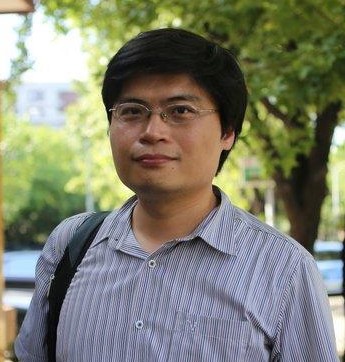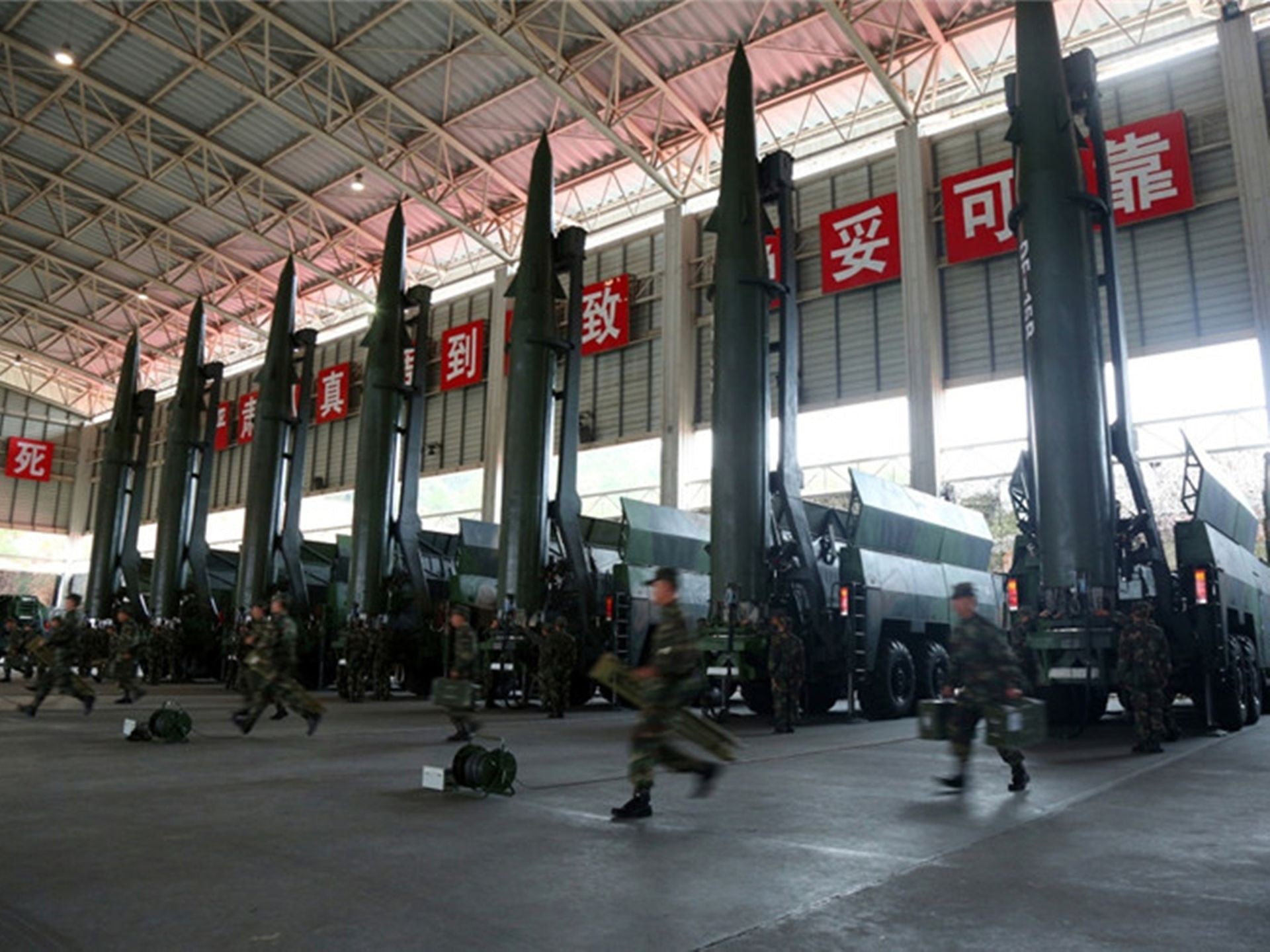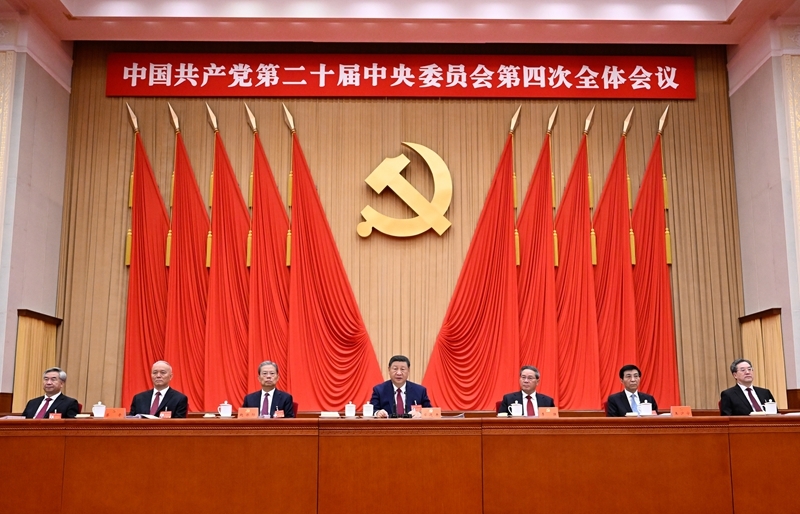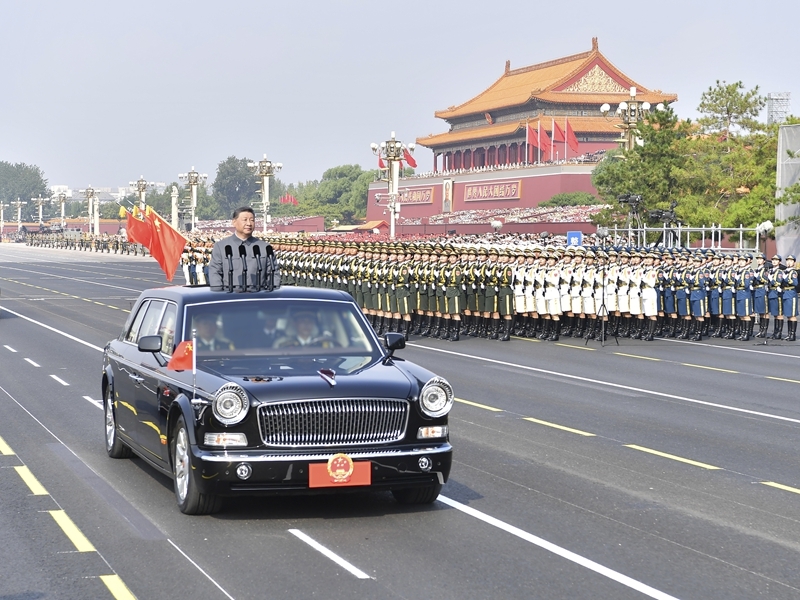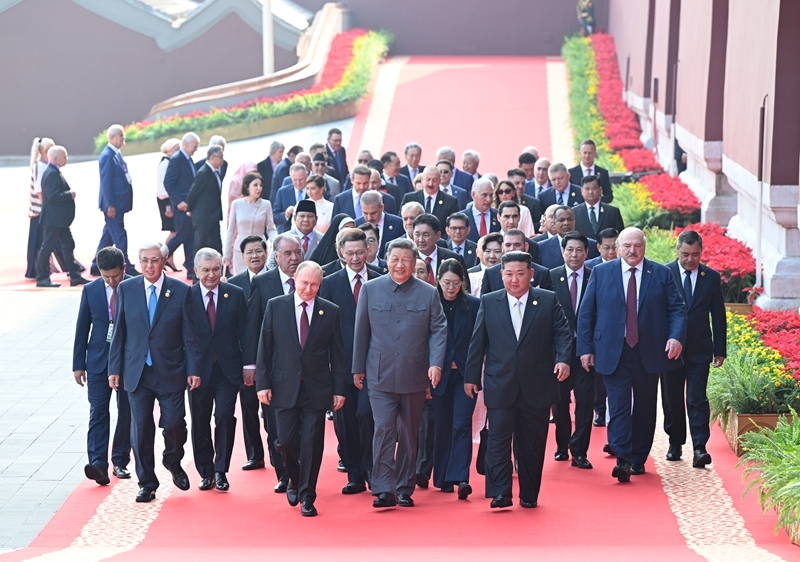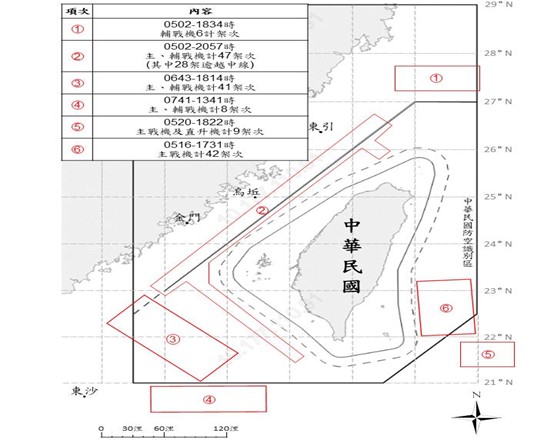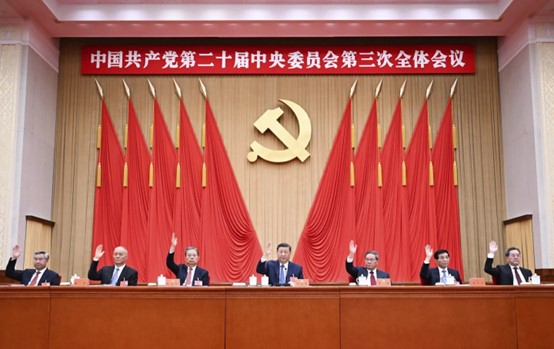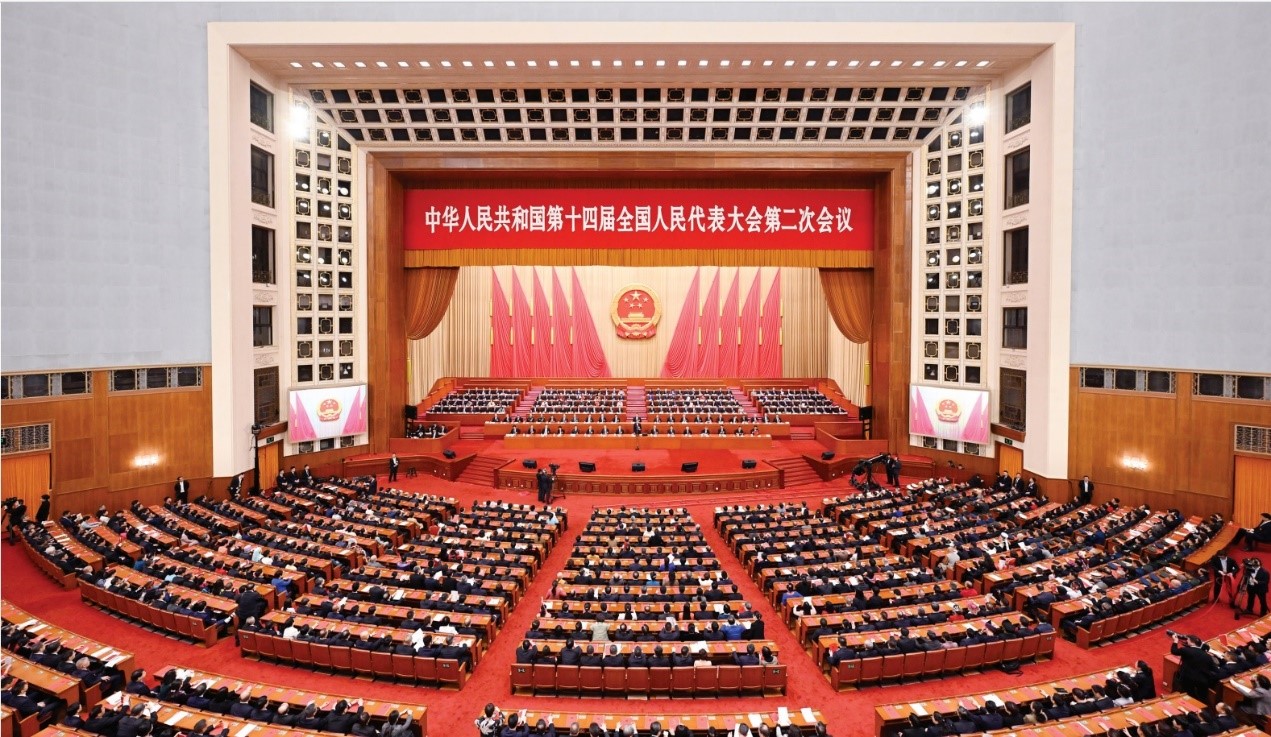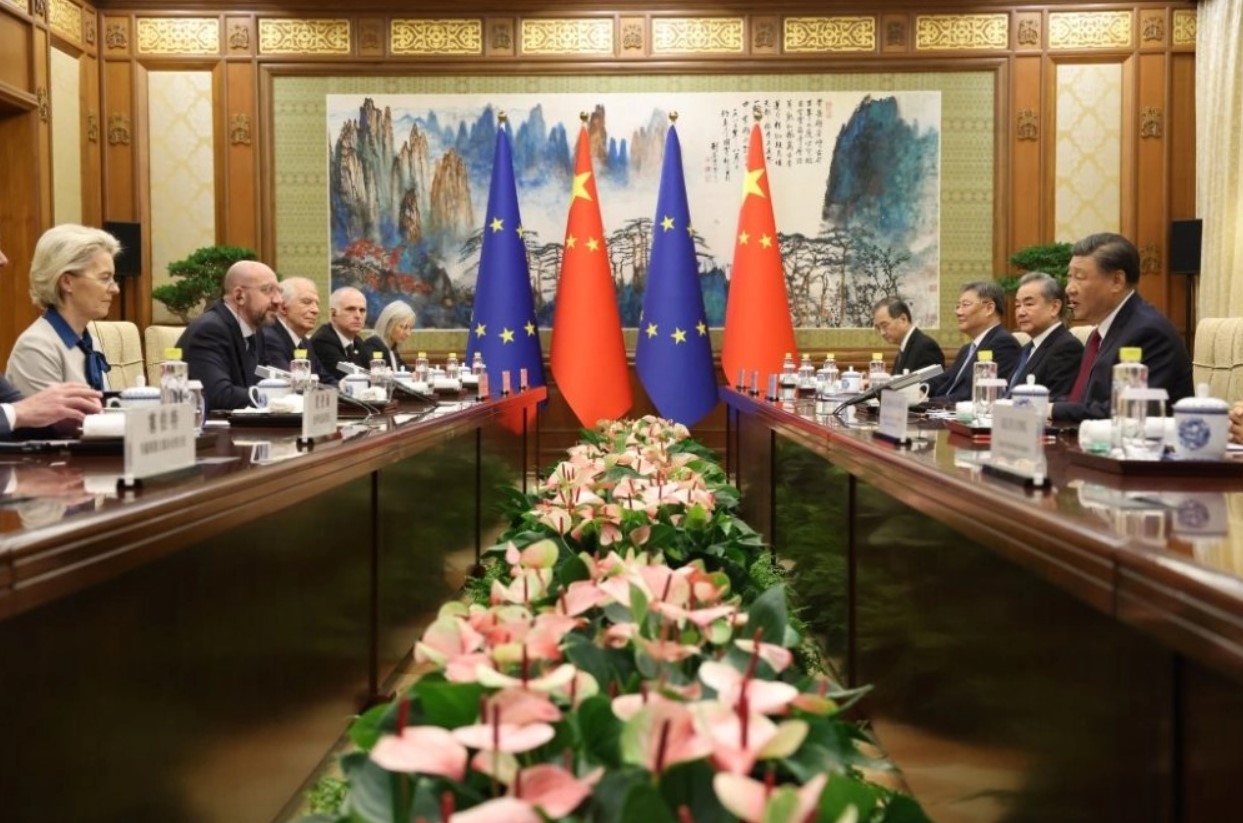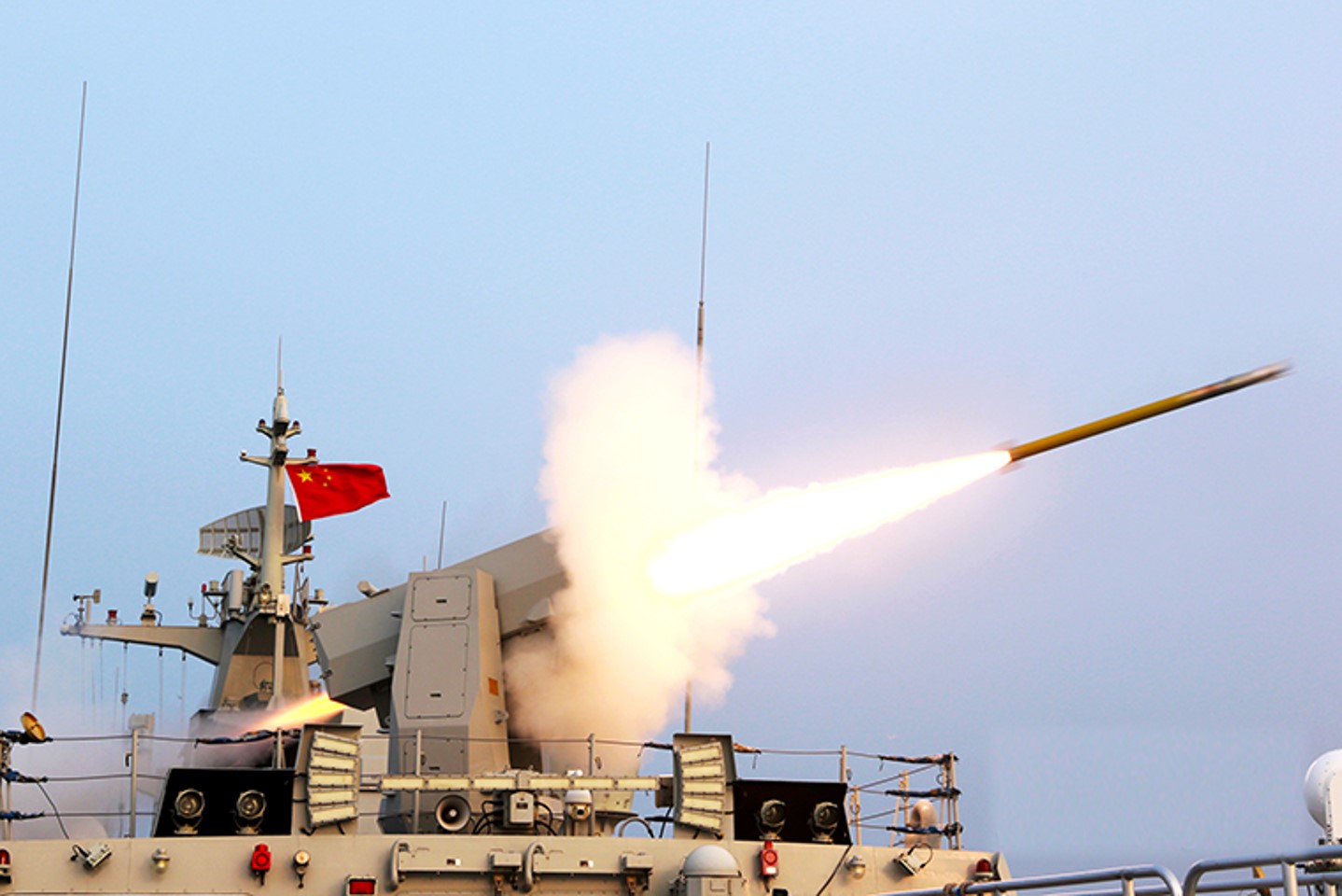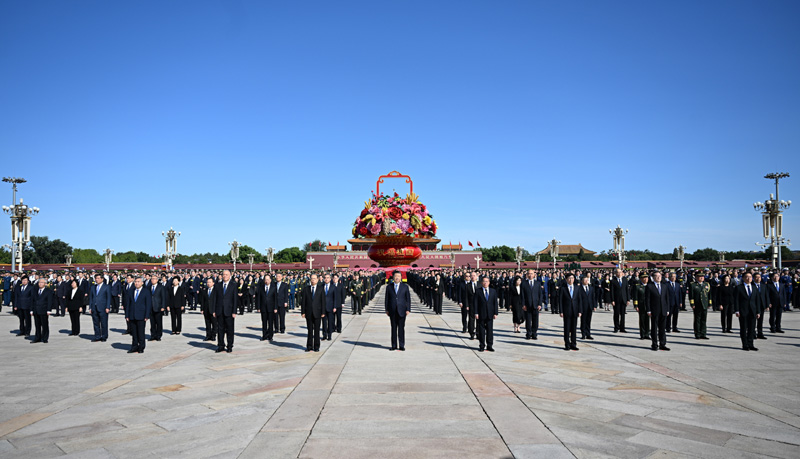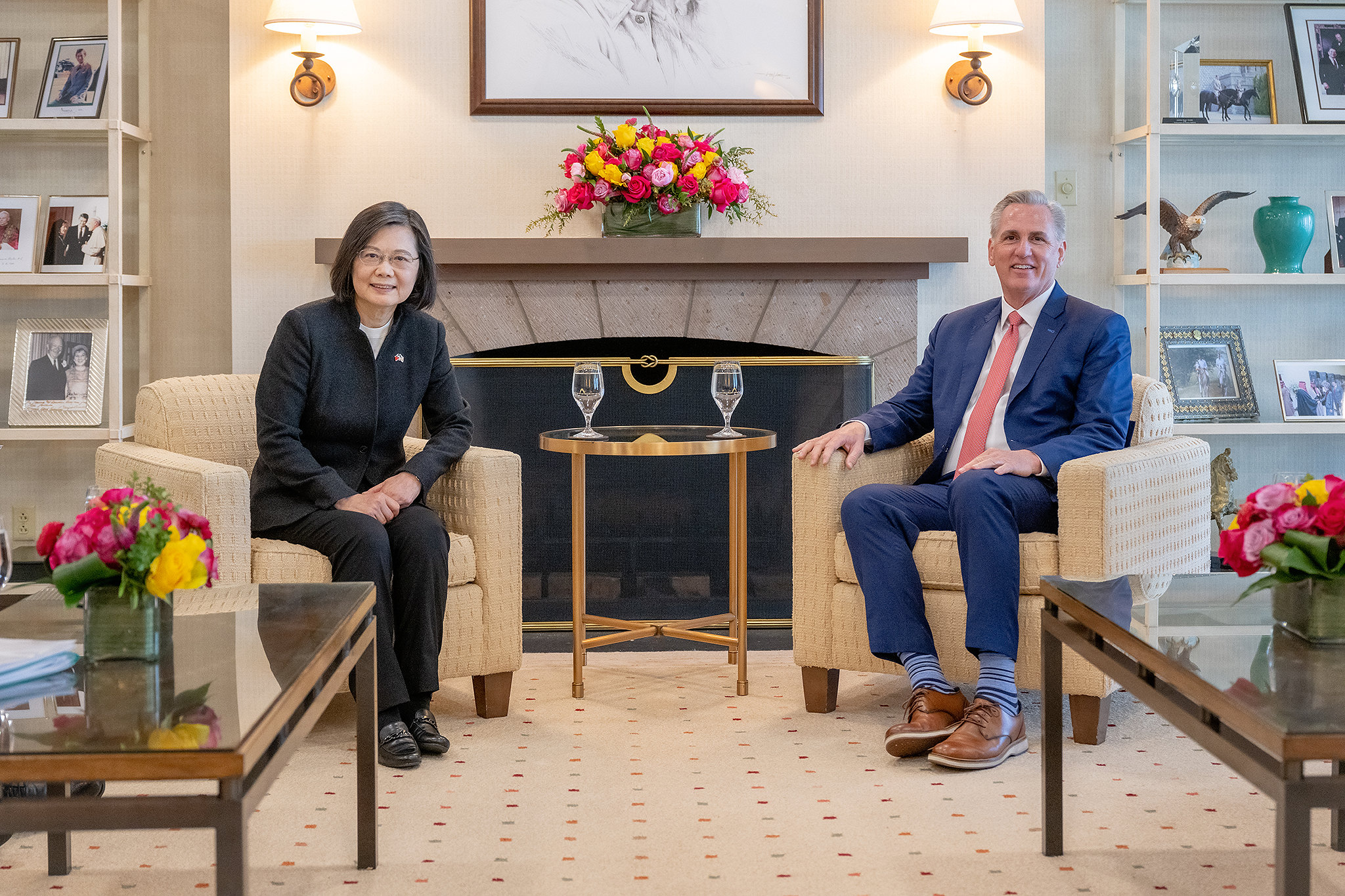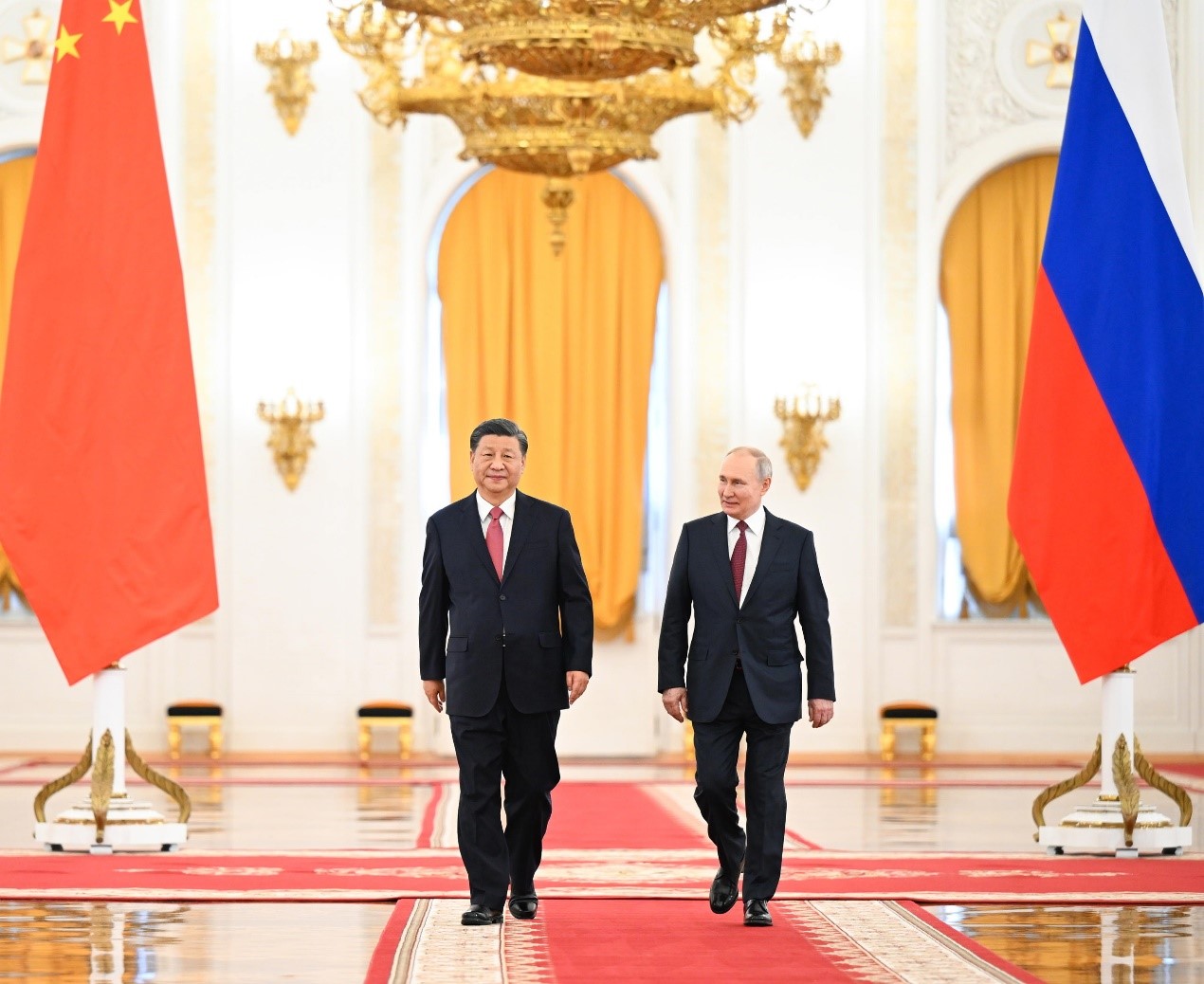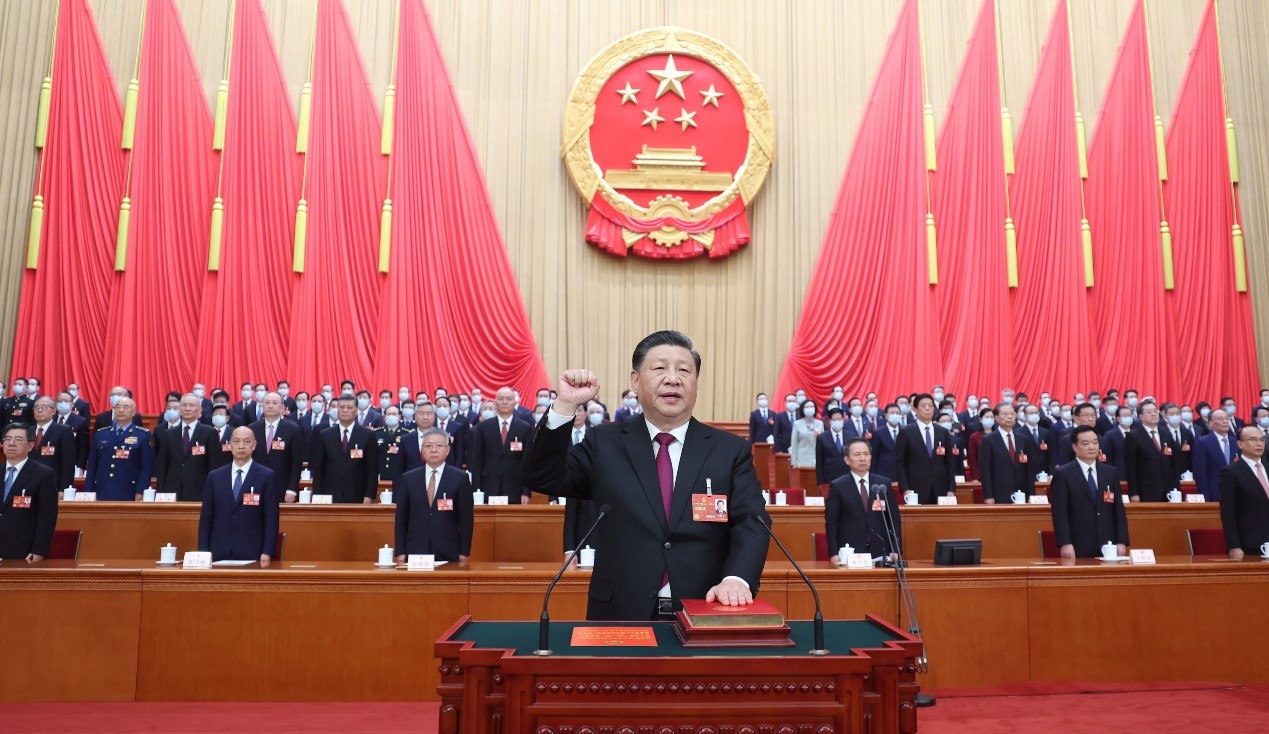On July 31, the CCP unexpectedly appointed Admiral Wang Houbin from the Navy and General Xu Xisheng from the Air Force as the new commander and political commissar, respectively, of the PLA Rocket Force. This unusual appointment confirms the previous rumors about the corruption investigation of the former chief and shows that despite Xi Jinping’s ongoing “war on corruption,” discipline problems within the military remain severe. Picture source: XINHUANET, January 6, 2018, XINHUANET, http://fms.news.cn/swf/2018qmtt/1_6_2018_jd/index.html.
Prospects & Perspectives No. 42
The PLA Rocket Force Gets New Leadership
By Shih-yueh Yang
On July 31, the Chinese Communist Party (CCP) unexpectedly appointed Admiral Wang Houbin from the Navy and General Xu Xisheng from the Air Force as the new commander and political commissar, respectively, of the People’s Liberation Army (PLA) Rocket Force (PLARF). This unusual appointment confirms the previous rumors about the corruption investigation of the former chief and shows that despite Xi Jinping’s ongoing “war on corruption,” discipline problems within the military remain severe.
This appointment has also sparked new questions. How could admirals and generals from the Navy and Air Force take over the Rocket Force? Is this not a form of “experts led by laymen”? Does Xi only care about discipline and political loyalty but not professionalism? Will the combat effectiveness of the PLA be negatively affected by this appointment? Well, not exactly.
The Characteristics of the Rocket Force
For its most important mission, what the PLARF needs most is probably political control. Under the current mutually assured destruction logic of nuclear deterrence, if it is really necessary to launch nuclear missiles, the launch must be strictly controlled by the highest political authority. If the launch system itself does not rule out the possibility of unauthorized launches by subordinate units, their political loyalty will be even more essential. The sequence of launches and the choice of targets are of little importance here. Nuclear retaliation is always aimed at the enemy’s population and industrial centers. As long as enough missiles are launched, they will surely penetrate the enemy’s missile defenses and allow nuclear warheads to hit the intended targets. This is precisely the “assured” destruction. Furthermore, just because the missiles of the Rocket Army can carry nuclear warheads, the launch of any missile may cause the reaction of the opponent’s nuclear weapons. Any accident or operational error may have disastrous consequences, which further highlights the importance of discipline to the Rocket Force.
In conventional warfare, the target selection and firing sequence of missile attacks are crucial. Conventional warheads are far less powerful than nuclear warheads and must be strategically arranged to hit specific targets at specific times to achieve desired battlefield effects. However, due to the limited destructive power of conventional missiles and their nature of one-time use, the unit cost of missiles is too high to undertake all strike missions. Reusable manned aircraft and unmanned aerial vehicles must be the main strike force. Taking the Iraq War in 2003 as an example, among the approximately 20,000 precision-guided weapons launched, only 800 were cruise missiles. In other words, in a conventional war of a similar scale, the PLARF would constitute at most one-twentieth of the overall firepower. Thus, the planning, coordination, and execution of a joint strike by missiles and aircraft would still have to be dominated by the theater air force.
Why Generals are ‘General’
The PLA Rocket Force’s closest equivalent in the U.S. military, the U.S. Strategic Command (SATCOM), is usually commanded by naval and air force officers from units other than cruise or ballistic missiles. Among the 12 commanders so far, six are from the Air Force, five from the Navy, and one from the Marine Corps. As for their service experiences, three of them are Air Force pilots, one Navy pilot, one Marine Corps pilot, four nuclear attack submarines (not nuclear missile submarines) captains, and one from fixed radar site and satellite ground station units. Only the 8th commander, General C. Robert Kehler, and the current commander, General Anthony J. Cotton, are from an intercontinental ballistic missile wing. Are we going to say that, except for these two commanders, the U.S. Strategic Command was also a form of “experts led by laymen”?
Unlike the Rocket Force, which operates ground-to-ground missile units only, SATCOM is also responsible for cyber operations and space systems. Pilots and submarine captains as commanders are nevertheless equally unfamiliar or unprofessional in this regard. Simply put, the higher the rank, the more generalist traits trump the so-called specialization, as the term “general” implies. The current chief of staff of the U.S. Army is a helicopter pilot, so can’t he manage the tanks and self-propelled guns in the army? The 5th commander of U.S. Strategic Command is a navy pilot but can serve as the captain of an aircraft carrier without a problem. This is especially true for the characteristics of the Rocket Force as mentioned. The commander’s job is more about oversight and evaluation rather than command and control. Officers from the Navy or Air Force are just as competent.
Xi is Historic
From this perspective, the appointment of new commanders of the Rocket Force not only shows that the Rocket Force has serious corruption problems but also means that Xi still has unshakable power over the PLA. Professionalism could be the best amulet for forming interest groups and nepotism within the Rocket Force. Because its profession cannot be questioned by others, it is impossible to prevent malpractice from external supervision. Furthermore, in contrast to the predecessor of the U.S. Strategic Command, the U.S. Strategic Air Command, which was mainly composed of bombers, the predecessor of the Rocket Force, the Second Artillery Corps, is a service branch of the ground force. Given that the PLA’s force structure is highly dominated by ground forces whose generals occupied most of the key positions in the PLA, appointing officers from the navy and air force as the chief of Rocket Force will weaken the position of the ground forces in PLA and further consolidate Xi’s authority.
Of course, Xi’s absolute power is quite likely to form a new wave of corruption, making him and his cronies the targets of future purges, detonating the next round of power struggles in the future. Still, this seems quite remote at the moment. One thing is for sure. Xi Jinping is no longer just the most powerful leader of the CCP after Mao and Deng, but a historic figure who can stand alongside Mao and Deng.
(Dr. Yang is Adjunct Professor, Department of International Affairs and Business, Nan-hua University.)

